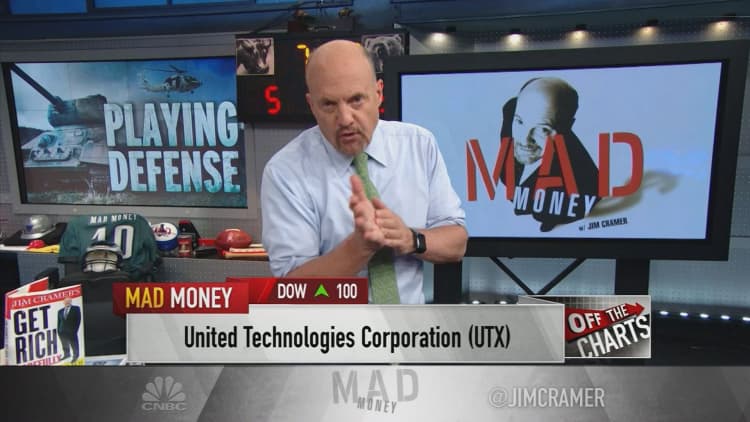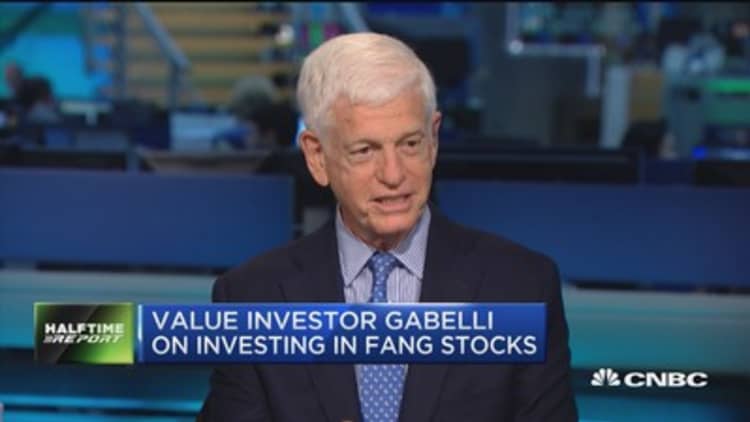Many critical positions in the Pentagon remain unfilled seven months into the Trump administration, and the situation is causing growing frustration for defense contractors — and now boiling over in earnings conference calls.
Industry executives say the vacancies in so many key positions at the Department of Defense means it's become a drag on signing new contracts and executing existing programs. At the same time, executives say delays and the lack of some direction from the Pentagon can cost defense contractors money and result in American taxpayers paying more in the end for programs and services.
"Without the appointments, it is difficult to process contracts and get authorized and appropriated funds obligated to contracts," General Dynamics CEO Phebe Novakovic said Wednesday on the company's second-quarter conference call.
"At this juncture, both are proceeding more slowly than we thought would happen," she said. "Nevertheless, we remain confident in the direction of defense spending."

Novakovic made those comments in her introductory remarks about the general defense environment.
At present, only 10 of the 53 top jobs at the Department of Defense have been filled with permanent political-appointee replacements. The situation is due to both the lack of nominations from the administration and a slow confirmation process in the Senate.
Also, some of the acting officials serving in the vacant posts lack the full authority to implement major changes or new policies, or are being told they can't act without prior approval from higher-ups in the administration.
The Pentagon declined to comment.
One of the vacant posts is the Pentagon's top acquisition official, the undersecretary of defense for acquisition, technology and logistics. The job was previously held by Obama appointee Frank Kendall, and only last month the White House nominated Ellen Lord as his replacement.
Lord, who had a Senate Armed Services Committee confirming hearing July 18, most recently was CEO of Textron Systems, an aerospace and defense development and manufacturing unit of the Textron conglomerate.
Similarly, two of the three service secretary positions at the Pentagon remain empty, including Army and Navy. The president's third pick for Army secretary fell through, and his choice of Richard Spencer for Navy was made only last month. Spencer, a finance executive, was Trump's second pick for the Navy post since an earlier nominee withdrew.
Trump's Air Force secretary pick, Heather Wilson, was sworn in five months into the new administration.
"The service secretaries are important positions in terms of policy, and they set the agenda and priorities as we work with them on various procurement projects," said Dan Stohr, a spokesman for the Aerospace Industries Association, a trade group representing more than 300 U.S. aerospace and defense companies.
Out of nearly $590 billion in the DoD's fiscal 2017 budget, just under $200 million in spending is expected to flow to defense contractors and other companies in the form of procurement or to support the Pentagon's research, development, test and evaluation efforts.
The No. 2 job at the Pentagon under Secretary James Mattis was filled only last week. Boeing executive Patrick Shanahan was nominated as deputy Defense secretary in March but only confirmed by the Senate last week — and that followed Armed Services Committee Chairman John McCain, R-Ariz., earlier threatening to block the pick.
"Most of the top jobs at the Pentagon have taken way too long to fill in the new administration, and the military will need to play catch up for the next two years," said Loren Thompson, a defense industry consultant and chief operating officer of the Lexington Institute, a Arlington, Virginia-based public-policy think tank.
Thompson said the situation today at the Pentagon is troubling because there's a "drifting for lack of senior leadership" and that translates into "a drag on signing new contracts and executing programs."
Also, executives say there's a risk of program delays or lack of clarity on already awarded contracts which can be costly for taxpayers and defense companies. They say contract personnel — whether design teams, engineers or production workers — can sometimes be kept waiting for guidance from the Pentagon but still are on the payroll.
Thompson said Shanahan and Lord are "quite accomplished on the industry side." But he adds that it will still take time for them to get up to speed at the Pentagon since "you don't just walk into the building and understand how things work."
Prior to taking the Pentagon post, Shanahan was senior vice president of supply and operations at Boeing.
In the case of Lord, she also is nominated for a key acquisition position that is mandated to essentially be eliminated next year. Congress in the fiscal year 2017 National Defense Authorization Act approved splitting up the job (undersecretary of defense for acquisition, technology and logistics) into two positions: one on the technology wing and a second on the acquisitions wing.
Even so, the defense industry is pushing for Lord to get into the post as soon as possible so she can help make things run more smoothly — and prepare for the split. They also hope she can help reduce regulations that defense contractors often complain are burdensome.
"Leadership in setting up the department to actually perform this split between the technology wing and the acquisition wing is going to be very important," said AIA's Stohr.
Stohr said the defense industry is hoping the Trump team at the Pentagon will be able to devote more attention to "over-regulation" issues since it "imposes significant inefficiencies in the acquisition process." For example, he said the industry tends to be "audited much more often and in much greater detail than is really required."
The AIA official said there's a reason for some regulation but it needs to be done "in a smart way. Are regulations tightly focused to their explicit purpose? Do they actually achieve their purpose? And if they don't, it's time to get rid of them or adjust them in such a way that they do."
WATCH: Gabelli says buy defense stocks



